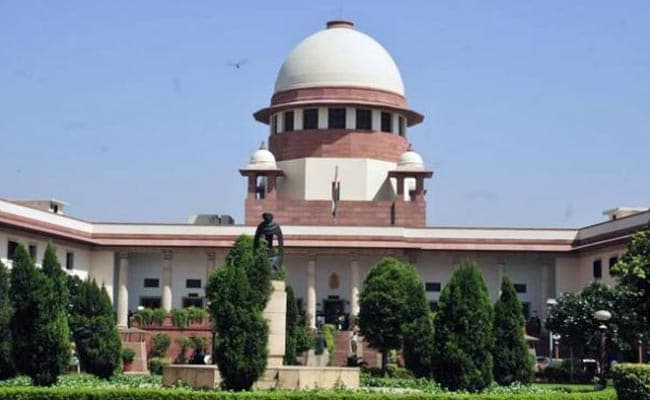
Top court would next week hear Nestle India's plea seeking its nod to destroy 550 tonnes of Maggi.
New Delhi:
The Supreme Court would next week hear Nestle India's plea seeking its nod to destroy about 550 tonnes of recalled stock of Maggi noodles which have passed shelf life.
A bench of Justices Dipak Misra and C Nagappan today posted the matter for hearing on September 30, after Food Safety and Standards Authority of India (FSSAI) sought a week's time to reply to the Nestle India plea.
Nestle has said the storage of such huge quantity of the noodles at 39 locations across the country may lead to health hazard.
Senior advocate Harish Salve, appearing for the noodle maker, said earlier too they had destroyed 38,000 tonnes of the noodles in the incinerators of the notified cement plants.
"We have followed the due process agreed between FSSAI and the company," he said.
But the counsel for the food regulator said "destruction of stocks as destruction of evidence" was also the subject matter of two SLPs pending in the top court. The counsel sought a week to seek instruction and file a reply to Nestle India's plea.
Mr Salve said the stock had crossed its shelf life and needed to be destroyed by following a due process which has been agreed between both the parties.
"This entire stock of approximately 550 tonnes is well past its 'best before date' and its storage is giving rise to conditions that may lead to health hazard at the said locations," the plea of Nestle India said.
It said over 38,000 tonnes of Maggi Noodles have been destroyed till September 1, 2015 at incinerators of the notified cement plants, keeping in view the environmental requirements and by following a procedure agreed between it and food regulator FSSAI.
On April 5, a Mysore-based government laboratory had given its test report on Maggi noodles in a sealed cover to the top court.
On January 13, the top court had asked the Mysore lab to clarify whether the test reports relating to lead and glutamic acid in Maggi noodles were within permissible parameters under the law.
The top court had passed the order after perusing two communications received from this lab which had carried out the test on monosodium glutamate content in the samples.
A bench of Justices Dipak Misra and C Nagappan today posted the matter for hearing on September 30, after Food Safety and Standards Authority of India (FSSAI) sought a week's time to reply to the Nestle India plea.
Nestle has said the storage of such huge quantity of the noodles at 39 locations across the country may lead to health hazard.
Senior advocate Harish Salve, appearing for the noodle maker, said earlier too they had destroyed 38,000 tonnes of the noodles in the incinerators of the notified cement plants.
"We have followed the due process agreed between FSSAI and the company," he said.
But the counsel for the food regulator said "destruction of stocks as destruction of evidence" was also the subject matter of two SLPs pending in the top court. The counsel sought a week to seek instruction and file a reply to Nestle India's plea.
Mr Salve said the stock had crossed its shelf life and needed to be destroyed by following a due process which has been agreed between both the parties.
"This entire stock of approximately 550 tonnes is well past its 'best before date' and its storage is giving rise to conditions that may lead to health hazard at the said locations," the plea of Nestle India said.
It said over 38,000 tonnes of Maggi Noodles have been destroyed till September 1, 2015 at incinerators of the notified cement plants, keeping in view the environmental requirements and by following a procedure agreed between it and food regulator FSSAI.
On April 5, a Mysore-based government laboratory had given its test report on Maggi noodles in a sealed cover to the top court.
On January 13, the top court had asked the Mysore lab to clarify whether the test reports relating to lead and glutamic acid in Maggi noodles were within permissible parameters under the law.
The top court had passed the order after perusing two communications received from this lab which had carried out the test on monosodium glutamate content in the samples.
Track Latest News Live on NDTV.com and get news updates from India and around the world

